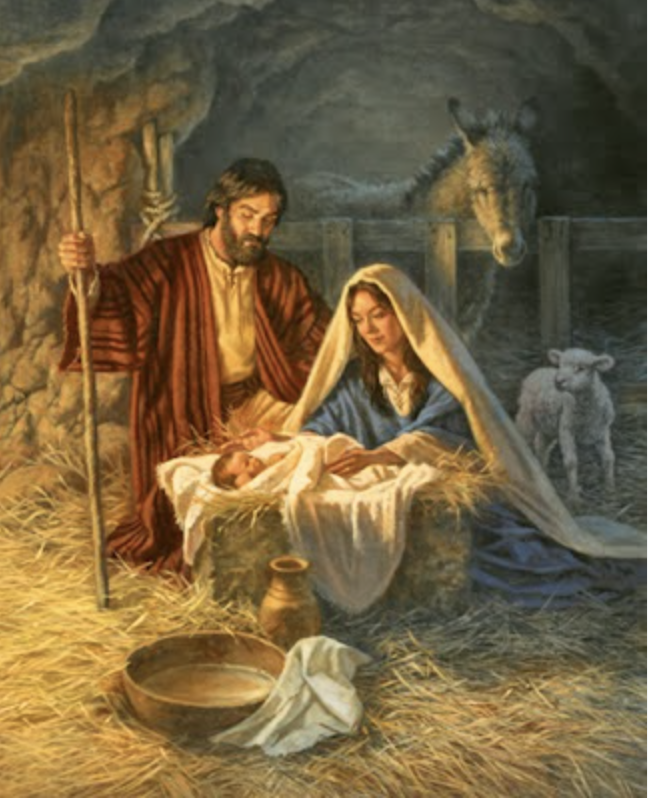
How to know the Will of God for Your Life
I don’t know about you, but when I was growing up it never occurred to me that God had a will for my life. It never occurred to me that He had any particular interest in the life decisions I made. I was my own man, free to make my decisions and choices as seemed best to me.
From my earliest years, adults would stop me and ask: “What do you want to be when you grow up?” For some reason, it was a big question for adults to ask little kids in my era in my part of the country. I always had an answer to the question–though it changed from time to time. I progressed from fireman to cowboy to movie star (not actor, you’ll notice, STAR) to architect and finally to famous author (again, please note the emphasis on famous).
In all my developmental years, it never once occurred to me to ask God what HE might want me to do with my life. Then when I was barely thirty, my life fell apart and out of my crisis and God’s delivering me from despair I came to a whole new understanding. I came to the realization–learned through much pain and suffering–that I was not only my own free agent, I also belonged to God. And though He had let me wander along my chosen path without my ever once running my life plans and decisions by Him.
He did–indeed–have some ideas about what He would like me to do with my life. In fact, He had a plan for my life, a plan the mighty God had had in mind from the moment of my creation. I came by that discovery after my life fell apart and He helped me put it back together again. In my despair, I turned to Him and said something like, “God, I’ve done it my way and things haven’t worked out very well, do YOU have a better idea for how I should live my life?”
Turns out He did.
Through my initial failure and subsequent surrender to Him I found, through Bible study and the mentoring of some spiritual giants who came my way, that God did indeed have a plan for my life. In fact, He has a plan for each one of our lives. And why not? If we believe God is our maker, our creator, and as Episcopalians, we do we affirm the fact every time we say the creed that God is maker of all that is seen and unseen–and that includes us. Presumably we aren’t deists. Deism being the old concept that God created the universe, our planet earth, and everything here including us, then retired to heaven like a clockmaker who makes a clock then goes away never to have further connection with that clock. No, we aren’t deists.
Our faith tells us that the Holy Spirit is alive and active here with us on earth. Further, the Bible tells us that God created us in His image, “a little lower than the angels.” Therefore, might it not be logical to assume that He has some purpose for us to fulfill in this life? Might we not at least consider the possibility of saying something like: “God, why am I here? Why DID you create me and put me here in this particular place at this particular time in history? Lord, do You have some sort of plan for my life?” And going further, might we not appropriately ask Him to show us what that plan might be? The Bible fully supports the idea.
The Bible is shot through with repeated reference to the fact that God has a will for each one of our lives. Israel’s greatest king, David, whom God said was a man after God’s own heart, had a clear understanding of the need for divine guidance. David got it. In Psalm 25, David writes: “Show me your way, O Lord, and teach me your paths (verse 3)…”Lead me in your truth and teach me” (verse 4-A) In Psalm 119, we read: “With my whole heart I seek You; let me not stray from your commandments.” (verse 10) Reading David’s story, we find him continually seeking God’s guidance.
Even Jesus was very clear about seeking God’s will. He said, “My food is to do the will of the one who sent me.” (John 4:34) Jesus also said, “I have come down from heaven, not to do my own will but the will of Him who sent me.” (John 6:38-40) When I began to study the Bible and discover scriptures like these, I suddenly thought: “How arrogant I’ve been. If David, whom God loved to such a degree, and Jesus, God’s own Son, sought God’s will for the living of their lives, who do I think I am? Am I smarter and wiser in the planning of my life than David and Jesus?” Of course not. So, from that day nearly forty years ago, I have sought God’s guidance, I have asked Him to show me His will for my life. And in a whole variety of ways, He has made His will known to me.
The Lord has guided me for all these years. And if the way has not always been easy, it has always been glorious–because I have been walking the path no longer chosen by my humble and inadequate understanding. I have been walking the path the Lord has laid down for me. I’m reminded of the proverb that says, “The man makes his plans, but the Lord guides his steps.” He has guided my steps. And for that I am deeply and profoundly thankful.
I want to talk about HOW we seek God’s will for our lives. But first, we need to take a look at exactly what the will of God actually is. Obviously, His will, His plan for each one of us varies according to our personalities, needs and life situation, but when you talk about the will of God, certain things apply. My clearest understanding has come from a line in the apostle Paul’s letter to the church in Rome. It’s Romans chapter 12, verse two. I prefer the King James translation, because it gives the will of God in terms of three levels of understanding. This answers a lot of questions for me. Here it is.
Paul writes: “And be not conformed to this world: but be ye transformed by the renewing of your mind, that ye may prove what is that good, and acceptable, and perfect, will of God.” What this says is that even though we may strive to walk with God and struggle to understand what He wants us to do, we may not always–for whatever reasons–be able to achieve God’s perfect will. We live in a fallen world. We know that though we may make the occasional perfect choice–my choosing to marry Nancy, my coming to Bedford, NY as rector of St. Matthews; though the choice may be the Lord’s perfect will for us, it does not mean that from that moment, all will be perfection.
No, we are human, we are flawed. This world is flawed, and subject to every conceivable kind of possible interference with what the Lord would see as ideal. Therefore, we have these gradations: perfect, acceptable, and good. The perfect will of God is what we saw in the Garden of Eden–God’s people living with Him forever, not subject to either disease or death, and enjoying perfect communication, perfect harmony with Him. Then came the fall from grace. Then came life in the real world as we know it, a world now subject to sickness, death, sin, suffering, and evil. Living, therefore, as we do in this fallen state in this fallen condition in this fallen world, we can only expect to see and experience flashes of God’s perfect will for our lives. That should not, however, stop us from trying to figure out His will for our lives.
And whether or not we ever manage to attain even moments of walking perfectly with Him, even the acceptable and the good are far better than flying blind, living by our wits alone, and letting chance have its way with us. So, when we ask God to help us conform to His will, we can expect few perfect times, though we certainly can expect that in combination, working together, the Lord and us will achieve His good will and His acceptable will, considering the circumstances.
There was a famous minister, Leslie Weatherhead, who preached to huge numbers of people in London around the time of the Second World War. He took a slightly different look at how the will of God plays out, though he, like Paul, also broke it out into three parts. Weatherhead saw the intentional, circumstantial and ultimate will of God. What is the intentional will of God? Perfection. All good things. Life back there in the Garden before sin intervened. Weatherhead spent some time in India. He had an Indian friend whose little son died of cholera. When Weatherhead arrived at the house, the father was waiting for him outside. Through his tears, the broken-hearted father said, “Well, padre, it is the will of God that my boy died.” The father and Stanley Weatherhead had been close friends for many years, still the minister know he was taking a tremendous chance. But he felt he had to be as honest with the man as possible. Weatherhead said, “Supposing someone crept into your house and while you slept, deliberately put a wad of cotton soaked in cholera germ culture over your little child’s mouth?” The father erupted. “What would I think about that? Nobody would do such a horrible thing. What do you mean by suggesting such a thing?” “But,” Weatherhead said, “isn’t that just what you have accused God of doing when you said it was His will? Call your little boy’s death the result of mass ignorance, call it mass folly, call it bad drains or communal carelessness, but don’t call it the will of God.” It was not in Stanley Weatherhead’s understanding the intentional will of God. It was not in Paul’s words, the perfect will of God that the little boy should have died at such a young age. Now, admittedly, a lot of people may get comfort from thinking tragic events are God’s will. A lot of people also blame a lot of tragic things on God, when God had nothing to do with it.
Someone confronted with a startlingly evil occurrence a couple of weeks ago, said, “Terry, please show me how THIS fit into God’s plan.” After 9/11, it came to me that a young man who lost friends in the Twin Towers was heard to say, “I’d like Terry to tell me how this fits into God’s plan. How does God let this horrible stuff happen?” The young man never came to me. He moved out of state before I could address his question. But my understanding is that in this fallen realm, God does not have complete control of what happens. If He did, there would be no ISIS, there would be no Holocaust, there would be none of the war, misery, death and destruction that keep the world in a state of disarray and chaos. I don’t blame God for that. In the 1928 Prayer Book there’s a prayer I still use at baptism, though it’s not in our current Prayer Book. I pray for the baptismal candidate that God would enable him or her to fight against sin, the world and the devil.
There you have it. Our freedom to make wrong choices, and to sin. The world with its self-serving, narcissistic, opportunistic influences. The devil–Satan and the evil that abounds. So that Paul could write: “We war not against flesh and blood but against powers and principalities.” In other words, evil spirits, evil thoughts, evil ideas and influences. So, the intentional will of God is never for awful things to happen to us. Don’t blame God. Blame sin, the world and the devil. Having said that, God can wrest from the grip of tragedy and suffering good. He can pick us up out of the worst situations and comfort and console us and teach us things that can serve us well as we move forward. Paul might say if we look, we can often find God bringing good out of evil. Weatherhead might say that out of the pain and suffering of life, we can still find God’s circumstantial will. Even from bad circumstances, He is able to bring good.
Finally, there is God’s ultimate will. That’s when in the life to come, all the broken strands of life are finally sewn by the Lord into a beautiful whole.
So how do we do it? How do we actually find the Lord’s will for our lives? At the risk of being reductionist, here are four steps to discerning God’s will for your life.
Step Number One, WANT. We have to genuinely want His will. For most of us, this first step is the hardest of all. To want His will, means giving up our will.
Step Two, SURRENDER. To want His will, we must–as we learn in the third step of the Twelve Steps of the Anonymous programs–surrender our will and our lives to Him. This requires mental action on our part. We must lay down our own plans, goals and aspirations and be willing–and willingness is everything–to accept His will for our lives. There is nothing easy about this. It goes counter to everything most of us have been taught–that self-determinism that is part and parcel of our western culture. It’s the self-made man. It’s the American dream. I can do it on my own. Look, Ma, no hands. Leave me alone; I can do it. There are lots of people who say they want God’s will for their lives and they’re sincere in saying it. But they can never get over this hurdle. They simply aren’t able to make the full surrender it takes. I surrendered because I was a broken man. And all I can say is, Thank You, Lord, for that breaking, for that crushing. Without it, I wouldn’t be a priest in His church. I wouldn’t be the rector of St. Matthew’s. I would never have attained such a degree of satisfaction and fulfillment as I’ve known all these years. When I started this walk, it never occurred to me that someday I’d be called to ordained ministry. I didn’t want to be a minister. But I surrendered, God persevered, and I’ve found in ministry my greatest joy. He knew me far better than I knew myself. And why not? He created me.
First we have to want to do His will. Second we have to get ourselves out of the way and surrender to Him.
Step Three, ASK. We need to ask Him to show us what He wants us to do. It’s as simple as that. Ask. The Bible tells us to seek Him and we will surely find Him. It is in finding the Lord, in getting to know Him, that we learn how to discern His guidance. Jesus said, “My sheep know my voice.” The more time we spend with Him–in studying His Word, in prayer, in quiet time “practicing His presence,” as the great mystics through the ages have called it, we come to know when it is God guiding us and not our own thoughts or the thoughts of the world that continually bombard us. Want, surrender, ask and finally wait.
Number four, WAIT. “They that wait upon the Lord shall renew their strength; they shall mount up on wings as eagles.” Here’s another counter-cultural step: waiting. Are we not an impatient culture? I know I’m an impatient man. I really do hate waiting for anything. I come by it honestly; nobody ever hated waiting worse than my father. Next to God, family and country, my father loved baseball best. He left at the end of every seventh inning, no matter how close the game, because he simply couldn’t abide waiting in traffic. In this, I am his son. But along with so much else, the Lord has taught me that sometimes when we wait for Him to give us the next step, the guidance we need, we find in our time of waiting not frustration but nourishment for our souls. Because as we wait on Him with the proper attitude of faith, trust and hope, we may find not only the guidance we need but another aspect of His nature and the strength to rise on our own set of eagle’s wings
This sermon was given July 1st, 2014
Terence Elsberry was Rector of St. Matthews Church in Bedford, New York at the time of this sermon.




Loved it. Will send to my 20 yr.old grandson who is starting to make choices for himself & needs guidance.